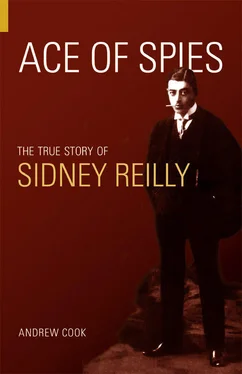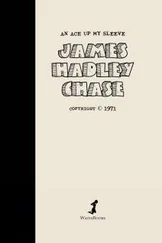I direct that my funeral and testamentary expenses and debts be paid. I give devise and bequeath to my said wife for her own absolute use and benefit all my real estate and the residue of my personal estate and all the property over which I have any power of disposition and whereas in the event of issue being born to me of my said wife Margaret such issue will under the Will of my late uncle, Hugh Thomas of Trevor Anglesey aforesaid become entitled to certain real estate and personal estate. Now I hereby declare that the gift devise and bequest to my said wife here in before contained shall include all real and personal estate which I may have power to dispose of as heir at law or next of kin of any such issue as aforesaid and I give devise and bequeath the same to my wife accordingly for her own absolute use and benefit. 9
Margaret also made a Will, assigning Henry Lloyd Carter as Executor. On the morning of Friday 11 March, exactly one week after making the Will, Hugh Thomas and his nurse, Anna Gibson, left Upper Westbourne Terrace bound for Victoria Station. Arriving at Newhaven Harbour Station during the late afternoon, their trunks were put into storage and the hand luggage taken to their adjoining rooms. Little did Hugh Thomas know, as he retired to bed early, that he had less than twelve hours left to live.
Saturday 12 March was a cold and wet day and the Reverend Thomas and his nurse were confined to the hotel. He retired to bed shortly before 11.00 p.m. It was early the following morning that John Simmons knocked on the door of the Reverend Thomas’s room; being an invalid, he had ordered breakfast to be served in his room. Getting no reply to his knocking, Simmons used his key to open the door. Inside the room was dark and seemingly all was normal.
Having seen a good number of slumbering guests in the three years he had worked at the hotel, Simmons’ instinct quickly told him that something was not as it should be. He therefore rushed from the room to alert the hotel manager, Alfred Lewis. 10It took a further half-hour before Lewis telephoned the Newhaven police to report that the Reverend Hugh Thomas had been found dead in bed. This was probably because his first reaction was to summon the Reverend’s nurse and a doctor, who by chance was also staying at the hotel, having arrived late the previous evening. Dr T.W. Andrew examined the body of Hugh Thomas and spent some time talking with Anna Gibson, the nurse, before advising Lewis that the death was the result of heart failure.
Hugh Thomas’s body was taken to a Chapel of Rest, and it may well have surprised the undertaker that, on her arrival the next day, Margaret voiced her intention to have her husband taken back to his place of birth in Anglesey for burial, rather than to London. What might have surprised him even more was the speed at which Mrs Thomas wanted the arrangements made. Eight to ten days was not an unusual period of time from death to burial in 1898, yet Margaret wanted a funeral on Wednesday 16 March, which gave the undertaker a mere day and a half to carry out the necessary rituals, make a coffin and convey the body to its final resting place in Llansadwrn Church Yard. 11
Not surprisingly, Hugh Thomas’s death caught the attention of the local press, much to the concern of Alfred Lewis, the hotel manager, who no doubt resented the unwelcome attention such a story brought to his hotel. It is interesting to note that one journalist referred in his account to the fact that ‘a young medical man having been able to certify the cause of death, it was not deemed necessary to hold an inquest’. 12
Six weeks later, probate of the Will of Hugh Thomas was granted to Margaret, who became the inheritor of £8,09412s (something in the region of half a million today). If Henry Lloyd Carter, Hugh Thomas’s solicitor and co-executor of the Will, had any doubts arising from the fact that the Reverend had expired within nine days of writing the Will, or indeed the fact that he was buried within three days of his sudden death, he did not say so publicly, and possibly did not say so privately either. Had he done so, and the authorities had conducted an investigation, what would they have discovered?
The police would, initially, have wanted to be sure about the cause of death. According to Dr Andrew, the cause of death was ‘Influenza Morbus Cordis Syncope’, which essentially means ‘influenza; a fainting of the heart’. 13It is as non-specific a diagnosis as is possible to record and most certainly one that would not be acceptable today. It could encompass virtually any heart condition, and taken literally and logically means quite simply that death occurred because the heart stopped beating!
The police would therefore have wanted to establish a more precise cause of death. They would have wanted to interview the Reverend Thomas’s own doctor about his general state of health, and most certainly Dr Andrew. It would have been at this point that what began as a routine enquiry would have turned into something more serious, for they would quickly have discovered that no such person as Dr T.W. Andrew MRCS actually existed. 14The Royal College of Surgeons, with whom Andrew claimed membership, would have confirmed that no one of that name was a member of the college. The General Medical Council would have consulted its register, which listed all doctors authorised to practice medicine in Great Britain. No T.W. Andrew MRCS would have been found there either. The police may well have contacted Dr Thomas Andrew LRCS, the only T. Andrew on the register. 15

Hugh Thomas during his tenure as Vicar of Old Newton, Suffolk (c.1860).
They would have found that this sixty-one-year-old doctor from Doune in Perthshire had not crossed the border into England during the entire thirty-six years that he had been practising medicine. Besides which, it would have been very obvious that this elderly Scotsman could not possibly have been the ‘young medical man’ referred to by the Sussex Express or the man recalled by Louisa Lewis, the daughter of the hotel manager. 16
In light of this disturbing development, the police would have proceeded to interview Margaret Thomas, Anna Gibson, other members of the below-stairs household, and friends and acquaintances of the Thomases. They would also have taken steps to have the body of Hugh Thomas exhumed to confirm the cause of death.
From what is known of Margaret’s personality, she would probably have held up well under the pressure of questioning. It is likely, however, that others interviewed would have mentioned a Mr Rosenblum and the fact that he was a regular visitor to the Thomas household, both at Upper Westbourne Terrace and at the Manor, Kingsbury. Would the police have harboured any suspicions about the purpose of his visits and his relationship with Margaret Thomas? Would the fact that Sigmund Rosenblum was a consultant chemist, and a Fellow of the Institute of Chemistry and the Chemical Society, with easy access to drugs, further fuel their suspicions? Would the police have made a connection between the ‘young medical man’ and the young chemist? The police may well have stumbled on the fact that the twenty-five-year-old Rosenblum had been in the country for a little over two years and was ‘known’ to Scotland Yard’s Special Branch.
Of course, no such investigation ever took place, much to Sigmund Rosenblum’s very great fortune. However, looking at all the available evidence, what can we conclude was the likely chain of events over the weekend of Hugh Thomas’s death?
Assuming that Thomas’s death was not a convenient and timely coincidence, we must consider the issues of motive, method, and opportunity. For Sigmund Rosenblum, Hugh Thomas was an inconvenient obstacle who stood between him and the achievement of two major ambitions. With Thomas’s death, Margaret would not only become a widow but a very rich widow, and by marrying Margaret, Rosenblum would achieve at least one ambition and effectively gain control of her new fortune. Rosenblum’s second ambition, the achievement of a new identity, would also benefit from this marriage.
Читать дальше













